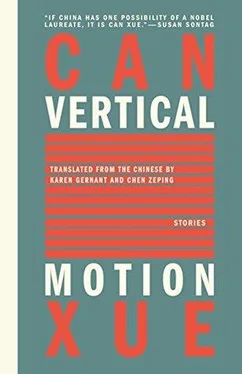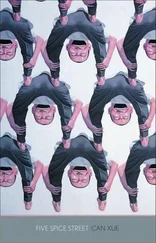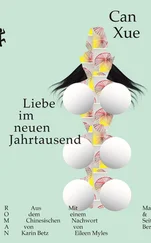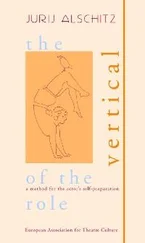Jin’s gaze left his book, and he glanced at her. Then he returned to the book and said:
“The rat is Ayi. You needn’t worry too much.”
Recovering, she replaced the tablecloth and went to the kitchen. After cooking for a while, she rushed back to the bedroom because she was afraid of the rat. Luckily, she didn’t see the little guy again. But she noticed that the lower part of the cloth on the dresser had been gnawed on, so it seemed this problem was real! When Mei was in primary school, the city was overrun with rats. People had employed all kinds of ways to get rid of them: blocking their paths, poisoning, tracking, pouring water on their nests, and so on. From then on, there had been no problem.
As she chopped radishes, she savored what Jin had said. Jin had said the rat was simply Ayi. This made some sense. Although the two families were next-door neighbors, and their children had played together, their socializing had been limited to simple greetings made in passing after the children grew up and moved away. So she’d been a little surprised when Ayi had asked for flower seeds. Judging by Ayi’s expression and movements, she was taking this matter quite seriously. But why? It couldn’t be merely for a few flower seeds.
At mealtime, Mei said to her husband:
“Will Ayi really grow the seed she took with her? What do you think?”
“No, because that one is fake; it’s one I culled to throw away. Altogether, quite a few are fake. As soon as she looks at it, she’ll realize that. It isn’t a flower seed; it’s a beautiful pebble.”
Jin winked at her complacently. Mei whispered to herself: “You cunning bastard!” She was a little worried that Ayi would hold a grudge against her because of this. Ayi’s husband was a sullen, one-eyed man. Would the couple think she had played a trick on them? Perhaps she should explain to them. Jin argued against this. He said it would be a case of “confusing the issue with more talk.” He also said, “Since she’s interested in this underground plant, it’s okay to make fun of her a little.”
=
Because of insomnia, Mei and Jin had started sleeping in separate rooms ten years earlier. In general, Mei could sleep from midnight to a little after one o’clock. After awakening, she couldn’t sleep again until after three o’clock. She would wake up again about five o’clock, and at close to seven o’clock she slept again for a while. She arose at sometime after eight o’clock. Every day was much like this. Mei’s nights were long. At first, this was hard to put up with. Between periods of sleep, she was drowsy. After awakening at one o’clock at night, dressed in her pajamas, she always made the rounds of each room. While doing this, she didn’t turn on any lights. And so, one night she fell — frightened of the sudden glare on the large mirror in the living room — and bumped against the side of the dining table. She broke her collarbone. Looking back on it, she thought the subtle sparkle had been caused by a passing car. Afterward, Mei had covered everything with cloths. After getting better, Mei ceased her nighttime rounds. She still got up during the night and sat on a low kitchen stool. Leaning against the wall, she would doze for a while. She sat in the kitchen because she could look out the window and see the sky and the trees. This was relaxing. At such times, recalling the long-ago days when she and her children had been together, she was astonished at the well-being she felt: Was that really the life she had experienced? The sense of well-being, however, came from her present contentment. Thus, after a long time, she started enjoying her insomnia. She imagined that she had become a large white goose waddling in the woods looking for food.
Unless he was greatly disturbed — for example, the time that Mei was injured — Jin did not wake up at night. According to him, he slept lightly: whenever something happened, he was aware of it.
“People like me are bound to die early, because we never have any real peace.”
He made a long face when he spoke of his situation, but Mei knew he was inwardly satisfied. Wasn’t light sleep much the same as wakefulness? If a person was always waking up, wasn’t this the same as living two lifetimes? Jin’s lifetime had been a really good bargain! What’s more, he was so healthy that he never fell ill: How could he die prematurely? He also said that he had never dreamed, because he was essentially always conscious and so there was no way to dream. As Mei listened, she thought: When she sat in the kitchen and dozed, she had one dream after another. The two of them were really not much alike.
Jin supported Mei in covering the furniture and other articles, because he also hated the glare from these things at night. “Even though I do sleep, now and then I open my eyes and see that eerie scene.”
The city had more and more cars, and people’s night life lasted longer and longer, and so cars had recently been passing Mei’s home all night long. After the furniture and other articles were covered, Mei felt that her home was “as solid as a huge rock.” The lamplight that swept past from the cars looked fleeting and insubstantial, and could no longer scare her. Jin was happy, too. He kept saying, “This is great, just great.” He added that although he didn’t wake up at night, he was quite aware of the cars’ rudeness.
“People call this herb ‘snakehead king.’ It can cure snakebites. In the past, it grew all over outside our old home. There were also numerous snakes there. This is the law of combating poison with poison.”
Jin placed the book on his chest, closed his eyes, and lay there. Mei saw only that his mouth was moving. Amused by this, she couldn’t help but interrupt:
“The herb’s scientific name is ‘ yizhi huanghua !’”
“Oh, you know this, too. When did you read my book?!”
“At night. My eyesight keeps improving. I can read by the faint light that comes through the windows from the street lamps.”
A slight smile floated up on Jin’s face. Mei wondered how far down the China rose had grown. Maybe Jin should have studied botany when he was young, but instead he had been a salesman. But if Jin had really become a botanist, could he have lived the kind of life he had now? Would the room be filled with plant specimens hanging everywhere? In recent years, he had read this same book about wild plants every day; he had never collected specimens. Not long before, Jin, who seldom went out, had rushed to the city center and brought back these China rose seeds. He had vaguely mentioned a relative’s name, so it seemed that this person had sent them to him.
Mei read Jin’s book in order to search for clues to Jin’s thinking. She admired him greatly. He was so calm! Even though a rat had sneaked into their home, he wasn’t fazed. By contrast, Mei had gone through a period of despair after breaking her collarbone. Along with an aunt who came to help out, Jin silently took responsibility for some of the housework. He seldom consoled her. Perhaps this was because of Jin’s composure. Mei recovered through struggling by herself. As soon as she regained her strength, Jin lay down on his chaise lounge again. He said with a smile that he was “about the same as a paralyzed person.” Mei thought his smile was one of contentment.
The accumulation of water in front of the door was something that happened all of a sudden. It had rained for two days and two nights, and mud had clogged the sewer. By midnight, the front of the apartment had turned into a pool. Just then, Jin had jumped out of bed and rushed barefoot into the rain. The battery-powered light on the windowsill was shining on the plastic awning over the flowers. Wielding a hoe, he worked hard in the rain. After about two hours, he had dug a trench to divert the accumulated water. It had never occurred to Mei that Jin could still be so energetic. It was as though he were fighting for his life.
Читать дальше












